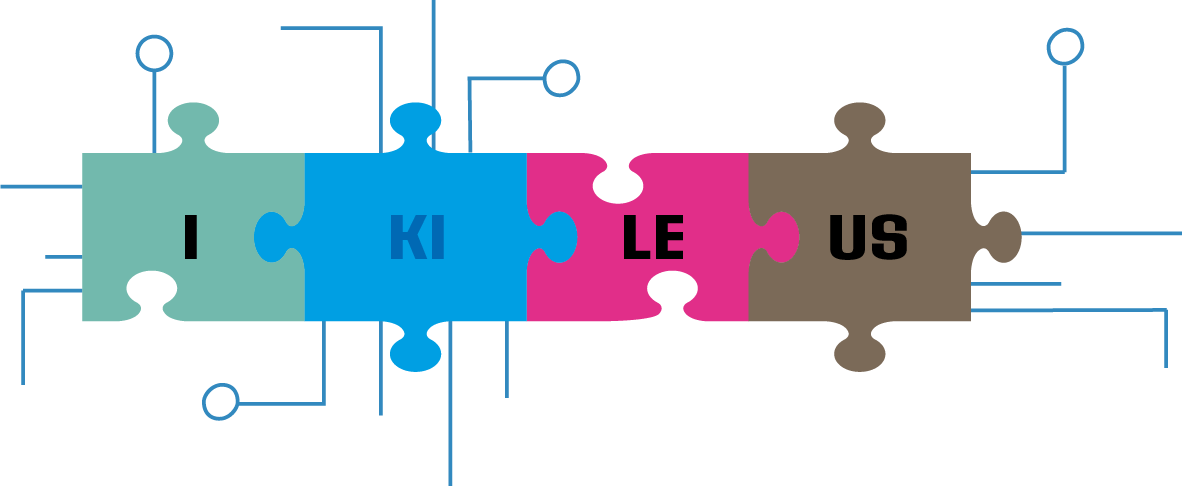Publikationen
Projektbezogene Veröffentlichungen
Arnold, J. B., Hörauf, D. (2024). A Multimetric Approach for Evaluation of ChatGPT-Generated Text Summaries. In IEEE Engineering Management Review, Volume: 52, Issue: 3, June 2024, (pp. 43-53).
Wirzberger, M., *Lado, A., Prentice, M., Oreshnikov, I., Passy, J.-C., Stock, A., & Lieder, F. (2024). Optimal feedback improves behavioral focus during self-regulated computer-based work. Scientific Reports, 14, 3124.
*gemeinsame Erstautorinnenschaft
Sengupta, K., Fathallah N., Staab, S. (2022) Accessibility of Online Educational Platforms. MPDAS Workshop (Multidisciplinary Perspectives on Designing Accessible Systems for Users with Multiple Impairments: Grand Challenges and Opportunities for Future Research workshop, The 24th International ACM SIGACCESS Conference on Computers and Accessibility), 23. Oktober 2022.
Herbst, V., Stock, A., Bareiß, L., & Wirzberger, M. (2023). User’s acceptance of an AI-based software to promote attention control. In M. Goldwater, F. K. Anggoro, B. K. Hayes, & D. C. Ong (Eds.), Proceedings of the 45th Annual Meeting of the Cognitive Science Society (p. 3911). Cognitive Science Society.
Wirzberger, M., Lado, A., Scheiger, C., Stock, A., & Zermiani, F. (2022). Augmented learning contexts: Leveraging augmented technologies to foster self-regulation in everyday life. In C. Bermeitinger, & W. Grave (Eds.), 52. Kongress der Deutschen Gesellschaft für Psychologie. Abstracts (pp. 455–456). Pabst Science Publishers.
Wirzberger, M., & Schwarz, M. (2021). Förderung selbstregulierten Lernens durch ein KI-gestütztes Training. Bildung und Erziehung, 74, 280–295.
Wirzberger, M. (2021). ACTrain@School: Can we bring AI to the classroom to foster self-regulated learning?. In EARLI 2021 Book of Abstracts. The 19th Biennial EARLI Conference for Research on Learning and Instruction. Education and Citizenship: Learning and Instruction and the Shaping of Futures (p. 108). European Association for Research on Learning and Instruction.
Wirzberger, M., Lado, A., Eckerstorfer, L., Oreshnikov, I., Passy, J.-C., Stock, A., Shenhav, A., & Lieder, F. (2020). How to navigate everyday distractions: Leveraging optimal feedback to train attention control. In S. Denison., M. Mack, Y. Xu, & B.C. Armstrong (Eds.), Proceedings of the 42ndAnnual Conference of the Cognitive Science Society (p. 1736). Cognitive Science Society.
Wirzberger, M., Oreshnikov, I., Passy, J.-C., Lado, A., Shenhav, A., & Lieder, F. (2020). ACTrain: Ein KI-basiertes Aufmerksamkeitstraining für die Wissensarbeit. In GfA, Dortmund (Ed.), Frühjahrskongress 2020, Digitaler Wandel, digitale Arbeit, digitaler Mensch? (C.8.8). GfA Press.
Themenbezogene Publikationen
Wirzberger, M., & Rey, G. D. (2018). Attention please! Enhanced attention control abilities compensate for instructional impairments in multimedia learning. Journal of Computers in Education, 5, 243–257.
Wirzberger, M., & Russwinkel, N. (2015). Modeling interruption and resumption in a smartphone task: An ACT-R approach. i-com, 14, 147–154.
Wirzberger, M. (2014). “Special offer! Wanna buy a trout?”– Modeling user interruption and resumption strategies with ACT-R. Cognitive Processing, 15(Suppl. 1), S24.
Wirzberger, M., & Russwinkel, N. (2014). “I don’t need it” – Modeling ad-induced interruption while using a smartphone-app. In CrossWorlds 2014: Theory, Development and Evaluation of Social Technology, Chemnitz. Universitätsverlag Chemnitz.
Wirzberger, M., & Rey, G. D. (2013). Attention impairment in multimedia learning: Does initial task attention act as moderator?. In Schwab, F., Carolus, A., Brill, M., & Hennighausen, C. (Eds.), Media Psychology: Media Research: Yesterday, Today, and Tomorrow. Proceedings of the 8th Conference of the Media Psychology Division of the German Psychological Society (p. 11). Universität Würzburg.
Wirzberger, M., & Rey, G. D. (2013). Inducing impaired attention within the seductive detail effect: Do already distracted learners suffer more?. In Ansorge, U., Kirchler, E., & Lamm, C., & Leder, H. (Eds.), Abstracts of the 55th Conference of Experimental Psychologists (p. 314). Pabst Science Publishers.
Ármane, S., Gärtig, S. İ., Tegtmeier, S., & Brem, A. (2021). STEM educated women entrepreneurs in Denmark, Latvia and Turkey: a context-based explorative study. International Journal of Entrepreneurial Venturing, 13(2), 186.
Bican, P. M., & Brem, A. (2020). Digital Business Model, Digital Transformation, Digital Entrepreneurship: Is There A Sustainable “Digital”? Sustainability.
Nylund, P. A., Ferras-Hernandez, X., & Brem, A. (2020). Automating profitability together: Is there an impact of open innovation and automation on firm turnover? Review of Managerial Science, 14, 269–285.
Kögler, K., Egloffstein, M., & Schönberger, B. (2020): Openness in MOOCs for Training and Professional Development – An Exploration of Entry and Participation Barriers (E. Wuttke, J. Seifried, J. & H. Niegemann, Eds.).
Giones, F., Gurses, K., & Brem, A. (2019). The Interplay of Technology Entrepreneurs and Regulation in a New Industry: The Case of the Drone Industry (F. T. Hyungseok.Yoon, Ed.; Vol. 3).
Licha, J., & Brem, A. (2018). Entrepreneurship Education in Europe: Insights from Germany and Denmark. International Journal of Entrepreneurship and Small Business, 33, 1–25.
